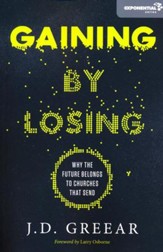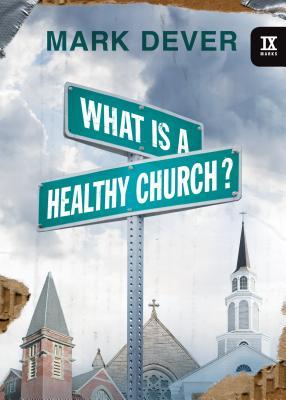Quotes about Ethnic-Diversity
[Christ’s death] is not a redemption of all people without exception, but of all without distinction.
Revelation, The New International Greek Testament Commentary, Eerdmans, www.eerdmans.com, 1999, p. 359.
Because I had been a basketball player, it never dawned on me to evaluate people on the basis of color. If you could play, you could play. In America it would appear that there is more openness, acceptance, and teamwork in the gym than in the church of Jesus Christ.
It was [Paul’s] mission as the “apostle to the Gentiles,” and it is the universal church’s mission as well, to promote that harmony of cultures in Christ that the cross brings them (or, we might say, forces upon them for their good). Imagine what it took for this former Jewish leader to accept that the Jews’ lofty position as God’s chosen people is not ultimately about ethnic Jews, but only Jewish Christians who share the position with “Gentile dogs” who have also become Christians. The promises made to the Jews are for all who are in Christ; the inheritance is both for Jews and Gentiles. We are all members of one body. The immensity of this new knowledge is not only enough to cause every God-fearing Jew to scream curses at Paul, but is the very reason Gentiles like me have any hope whatsoever. Paul carried this message everywhere.
Multi-Cultural Glory in the Church, Christian Communicators Worldwide, www.CCWtoday.org.Used by Permission.
An additional impetus to our unity among diversity is that of the projected makeup of the future kingdom. It is glorious in its admixture of those from “every tribe and tongue and people and nation” (Rev. 5:11). We cannot, must not, live contrary to our final convergence in Christ. In the ugly old slavery of early America, the schizophrenia about this was incredible. There were blacks and whites who would not dream of worshipping as equals (though they were sometimes in the same building), yet at the same time would hold the doctrinal verity that all colors would be in heaven together some day. This was entirely incongruous. We are called to experience in this life as much of the spirit that will characterize us in the new earth as is possible. The ideal of heaven is always to be the pursuit of earthbound believers. “Your will be done, on earth as it is in heaven” (Matt. 6:10). We cannot pray for the Kingdom to come and not relish what that coming Kingdom means. Our community of believers is to be a living demonstration of the power of the cross and also of the purified Bride who awaits the wedding. We are denying our future calling to fail in this area. We are smearing our reputation and throwing dirt on our bridal gown.
Multi-Cultural Glory in the Church, Christian Communicators Worldwide, www.CCWtoday.org. Used by Permission.
Racism isn’t a bad habit; it’s not a mistake; it’s a sin. The answer is not sociology; it’s theology.
People who treat others as inferior are those who themselves suffer from a sense of inferiority and insecurity. Others are a threat to them because they don’t have a sense of being important to the eternal God. They don’t have the assurance that this God will look after them more than adequately. When we lose sight of our identity in Christ, lesser identifying features, like race, class, caste, and education, become significant. We try to find our identity by acting more significant than others.
The New Humanity by Ajith Fernando taken from The Supremacy of Christ by Ajith Fernando, copyright 1995, Crossway Books, a division of Good News Publishers, Wheaton Illinois 60187, www.crosswaybooks.org, p. 200.
We sometimes use the analogy of beef stew to illustrate how we think racial diversity will play out in our church. We don’t want to be a bag of marbles, where each culture exists side by side in a congregation but with interpenetration with the others. We also don’t want to be a melting pot, however, where each culture loses its distinctive flavor. If you mix a hundred different paint colors together, you end up with a dull gray. We want the church to be like beef stew, where each element retains its basic consistency but “flavors” the others, too. That’s cheeky, for sure, but it helps us picture what racial diversification might look like in a local body.
But God’s goal is not simply to have us stop looking down on other races. God wants unity, not just a ceasing of hostilities. He wants the very makeup of His church to preach the gospel: that despite our racial variants we are united under one ancestor, Adam; that we had one problem, sin; and that we have one hope, salvation in Christ. He wants us to demonstrate to the world that this unity in Christ is weightier than anything that might divide us. When the Holy Spirit confronted Peter’s racism, he didn’t just command him to quit looking down on other races. He commanded Peter to embrace Cornelius, to go in and eat with him. Peter did not go from “racist” to “non-racist”; he went from “racist” to “gracist.”
[For Christians] the ground is level at the foot of the cross. This being so, it is absurd to be partial toward anyone. All should be treated equally – as beings created in the image of God. Rich and poor should be accorded equal honor and cordiality. Discrimination or favoritism is spiritually irrational.
Taken from James by Kent Hughes, copyright 1991, Crossway Books, a division of Good News Publishers, Wheaton Illinois 60187, p. 94, www.crosswaybooks.org.
Although the gospel does not approve of removing slavery by social revolution, the gospel throughout history has brought the freedom of more slaves than any human philosophy, movement, or political system. In past times, some Christians, unfortunately, have supported and tried to justify slavery. But the Bible does not; and where Christians are faithful to Scripture, slavery cannot flourish.
When the Gospel enables us to live in love, even though we may have nothing else in common save Christ, it is a testimony to its power to transform a group of sinful, self-centered people into a loving community united by a common relationship with Jesus Christ (Mark Dever and Paul Alexander).
Loving Each Other, taken from The Deliberate Church, © 2005, Crossway Books, a division of Good News Publishers, Wheaton Illinois 60187, p. 111, www.crosswaybooks.org.
Clearly, pastors and church members in the pre-Civil War United States who used God’s Word to justify the practice of slavery were living in sin. For whether then or today, Scripture clearly considers any slavery that undercuts the value or dignity of any person as rebellion against God’s lordship, a violation of God’s law, and a denial of God’s love for every single person made in His image.
Taken from Counter Culture, Copyright © 2015 by David Platt. Used by permission. Website: Radical.net. Page 121-122.
For in the beginning, sin separated man and woman from God and also from one another. This sin stood (and stands) at the root of ethnic pride and prejudice. When Christ went to the cross, He conquered sin, making the way for people to be free from its hold and restored to God. In so doing, He paved the way for all people to be reconciled to one another. Followers of Christ thus have one “Father” as one “family” in one “household,” with no “dividing wall of hostility” based upon ethnic diversity.
Taken from Counter Culture, Copyright © 2015 by David Platt. Used by permission. Website: Radical.net. Page 217.
The family of God is ethnically and culturally diverse. As Christians we not only permit such diversity, but we cherish it. This is because God Himself cherishes ethnic diversity. He is not color-blind; He is colorful. At His throne God welcomes worshipers “from every nation, tribe, people and language” (Rev. 7:9). His plan of redemption is for the peoples of the world in all their rich variety.
It’s without doubt that the population of heaven is multi-ethnic. There are many places you can turn in the Bible if you wish to prove the sin of racial discrimination, but when we read those in heaven are from “every tribe and tongue and people and nation” (Rev. 5:9), it’s unmistakable that God’s does not judge one’s worth based upon a superficial distinction such as skin pigmentation. God looks at the heart. And He loves and welcomes all people who have a heart to do His will. We live in a world that likes to separate. In God’s economy the only separation seen is those with Christ and those without Christ. Ultimately, that is all that matters.
Christ solved the problem of discrimination. Through the shedding of His blood, He made us understand that we are the same in essence. That God looks not at these superficial externals and therefore neither should we. That we all deserve of hell, but in response to His marvelous grace we who deserve only hell can be made alive and brought together in His spiritual family under the loving bonds on one heavenly Father.
When God created the world, Genesis 1:27 tells us that He “created man in His own image, in the image of God He created him; male and female He created them.” We have been created with gender distinction, but not race distinction. We are all in the human race. And unlike the rest of creation, all humans have been made in God’s image. To elevate animals above humans or to elevate one skin tone above another, reveals a failure to understand and appreciate the intrinsic God-given value of all human beings.
Racism is real. It’s existed in the world and will to some degree, if there are people, always be present in society. Its root is in pride, the superiority of self and is manifested in the sins of anger, envy and hate. It’s really a bizarre sin to hate someone because of their skin color. We need to start with God. Obvious God created and sees skin tone, but His primary concern is the heart. 1 Samuel 16:7, “God sees not as man sees, for man looks at the outward appearance, but the LORD looks at the heart.” To reduce life to skin color, not only diminishes the primacy of character, but also negates God’s universal love for all mankind that all are created equal in His image. Racism is superficial, hateful, prideful, self-defeating and godless.
The modern tactics to combat racism with more racism is an idol posing as God. Technically, it’s a new religion brought to us from zealous evangelists. Converts are brought to its side by fear and intimidation. Rational debate, examination of the beliefs or verification of the narrative is not tolerated as this religion demands blind faith. And the heretics of this new religion are those who do not agree wholeheartedly with its dogma. The yoke is heavy and its burden impossible to bear. You might surrender today, but more will be demanded of you tomorrow. Your profession will never be remorseful enough. Your financial offerings never large enough. There is nothing you can do to appease the wrath of this god. Most frightening, your greatest sin is your unchangeable skin color. Therefore, there is no opportunity to repent. Hence no forgiveness and no grace. You live the rest of your life in perpetual guilt with no lasting atonement. The god of this religion has condemned you for the race you didn’t ask for, the motives you’ve never imagined and the sins you never committed. Those are your original sins. There is no hope, but you still must bow to the demands or face the eternal wrath of being labeled a racist (some content adapted from Voddie Baucham).













